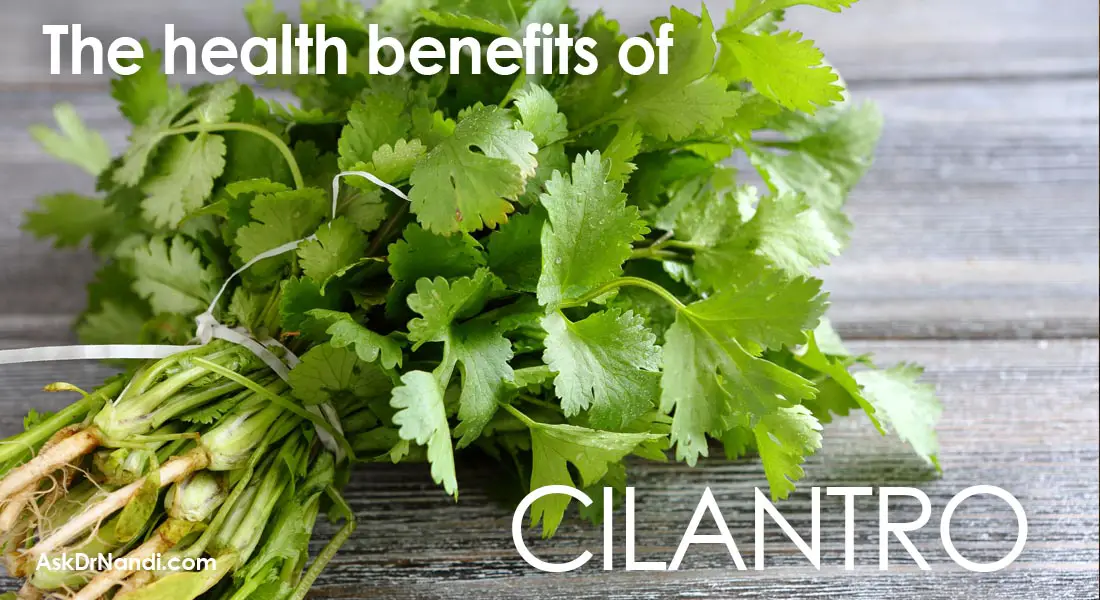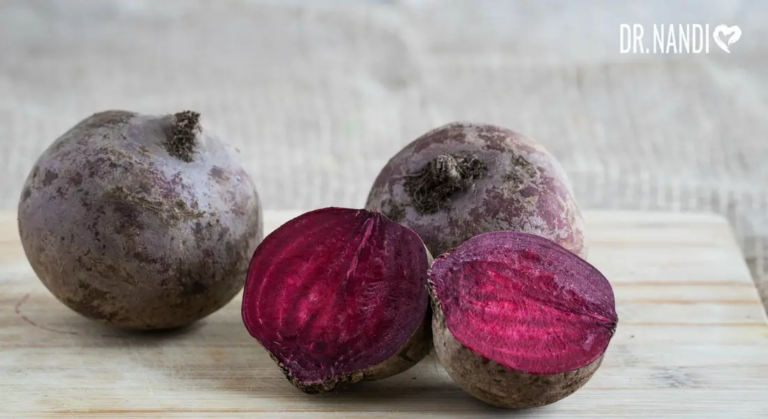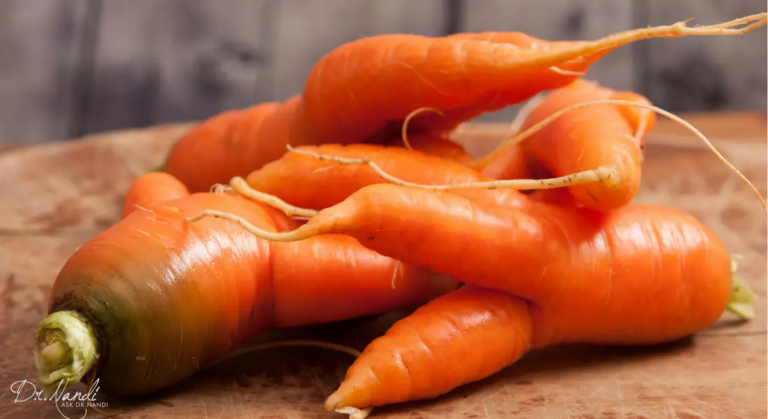Coriander, also known as cilantro, has many health benefits. It is a rich source of antioxidants and can help fight inflammation. Cilantro can also help improve digestion and heart health. It is a versatile herb that can be used in both cooked and raw dishes. Cilantro is an excellent addition to any diet!
Nutrition Information
Cilantro’s high content of phytonutrients, flavonoids, and phenolic chemicals explains its health benefits. Furthermore, it is low in calories and rich in vitamin K and A. Every four grams (about a quarter cup) serves up to:
- 1 calorie
- 0.1 grams carbohydrates
- 0.1 grams protein
- 0.1 grams fiber
- 12.4 micrograms of vitamin K
- 1.1 milligrams of vitamin C
- 0.1 milligrams of vitamin E
- 2.5 micrograms of folate
- 20.8 milligrams of potassium
Health Benefits of Cilantro
Below are some of the fantastic health benefits of cilantro
Cilantro Is High in Vitamin K
Research has shown the importance of Vitamin K for its potential bone mass building and its role in treating Alzheimer’s patients. Cilantro contains over 250% of the daily recommended intake of Vitamin K. Research shows Vitamin K helps Alzheimer’s patients by limiting neuronal damage in their brains. Promising results have shown that Vitamin K helps with the bone mass building by promoting osteotropic activity in the bones.
Cilantro Promotes Sleep and May Reduce Stress and Anxiety
Research has found that people who eat cilantro benefit from calmer nerves and improved sleep quality because of its natural sedative effects. A recent study found that high levels of cilantro extract can produce the same anti-anxiety effects as Valium. Researchers believe cilantro can relieve anxiety and improve sleep without adverse side effects in valiums, such as confusion and aggression.
Cilantro May Lower Blood Sugar Levels
Researchers observed a correlation between diabetes diagnosis and cilantro’s ability to support healthy liver function and blood sugar levels in a test. They have long suspected cilantro could treat diabetes. And consumption of cilantro raises insulin secretion and lowers blood sugar.
Cilantro May Be an Effective Antibacterial Agent
Current studies show that cilantro contains an antibacterial agent that may be a safe and natural way to fight Salmonella, a deadly cause of foodborne illness. Dodecenal, a compound in cilantro, is twice as effective at killing Salmonella as the regularly prescribed antibiotic Gentamicin. Dodecenal is a promising antibiotic, according to preliminary research. Another eight antibiotic substances were discovered in cilantro seeds and leaves.
Cilantro is Excellent for Allergies
Many studies have shown that cilantro has a potent antihistamine property. This property can help to reduce the uncomfortable effects of seasonal allergies and hay fever. The oil from cilantro has been shown to reduce allergic reactions to contact with plants, food, insects, and other substances known to cause allergic reactions. Researchers have found that consuming cilantro can help fight anaphylaxis hives and the dangerous swelling of the throat and glands. More studies are being done to see just how effective the cilantro plant is and how effective the oil derived from the plant is.
Cilantro May Protect Against Oxidative Stress
Oxidative stress is associated with various degenerative illnesses, including cancer, heart disease, arthritis, Alzheimer’s disease, macular degeneration, and aging.
Coriandrum sativum contains antioxidants that assist in protecting the body from free-radical damage. Coriandrum sativum’s high content of antioxidants, according to a recent in vitro study, protects against oxidative stress.
Cilantro May Reduce Anxiety
Cilantro has a sedative effect and may help to improve sleep quality due to its natural sedative effects. A recent animal study published in the Indian Journal of Pharmacology revealed that high dosages of cilantro extract had an anti-anxiety impact similar to Valium (diazepam), a popular prescription drug.
Confusion, hallucinations, risk-taking behavior, agitation, violence, memory difficulties, and muscular weakness are all possible valium adverse effects. If used appropriately, this extract might help you relax without potentially dangerous side effects.
Cilantro Supports Heart Health
According to research, this plant might help reduce several heart disease risk factors. One animal study found that cilantro helps lower cholesterol and triglyceride levels in the body by encouraging weight reduction. The antioxidants in the herb can help prevent oxidative damage, which is linked to heart damage, according to a study published in Food and Chemical Toxicology.
Cilantro May Prevent Urinary Tract Infections
Bacterial growth, sexual activity, genetics, or diabetes are all possible sources of urinary tract infections. Cilantro’s antibacterial chemicals might help maintain a healthy acidic environment and prevent harmful bacteria from growing in the urinary tract. Coriander seeds may also assist with pain relief if a UTI occurs.
To make coriander seeds, soak them in two cups of water overnight. Strain and consume or add to your morning smoothie, according to custom. It is thought to help with the UTI’s pain and healing by alleviating discomfort and pain.
Cilantro Supports Healthy Menstrual Function
Coriander seed from cilantro has properties that benefit healthy menstrual function by regulating hormone function and endocrine gland activity. Coriander may help reduce bloating, cramps, and discomfort during the cycle.
Cilantro May Prevents Neurological Inflammation
Chronic inflammation is connected to neurodegenerative disorders such as Alzheimer’s, Parkinson’s, and multiple sclerosis. According to research published in Molecular Neurobiology, diets high in turmeric, pepper, clove, ginger, garlic, cinnamon, and coriander might help prevent inflammation linked with these devastating illnesses. Researchers also discovered that populations that consumed diets heavy in these herbs and spices had a reduced risk of neurological decline.
Cilantro May Help Protect Against Colon Cancer
According to promising research, coriander may help prevent colon cancer by lowering cholesterol levels and increasing bile and sterol excretion in animal studies. This process reduces harmful amounts in the colon, lowering cancer risk.
Cilantro May Soothe Skin Irritation
Cilantro has been used as an antiseptic for a long time, especially on the skin. Cilantro’s natural antihistamines aid in the reduction of allergic responses by soothing the immune system response. Fresh cilantro and coconut oil can be mixed and applied topically to sunburns, dry skin, poison ivy, and hives due to allergy reactions to relieve discomfort.
To get all of the cilantro advantages, instead of coconut oil, blend it with water and strain it. Apply this to your skin and drink the remaining juice. This two-pronged strategy is very beneficial when seeking comfort due to an allergic response.
Side Effects of Eating Coriander
Coriander and cilantro are viewed as non-toxic. Individuals allergic to fennel, dill, aniseed, caraway, or other similar plants may experience minor allergy responses.
In rare circumstances, occupational exposure has been associated with life-threatening allergic reactions. According to research, anaphylaxis and respiratory problems are caused by repeated contact, especially in processing plants. People with bronchitis or asthma should be cautious when using powdered coriander since it can irritate the bronchial arteries.
References:
- Coriandrum sativum–effect on lipid metabolism in 1,2-dimethyl hydrazine induced colon cancer – PubMed (nih.gov)
- Coriander Leaf Extract Exerts Antioxidant Activity and Protects Against UVB-Induced Photoaging of Skin by Regulation of Procollagen Type I and MMP-1 Expression – PMC (nih.gov)
- Allergy to coriander. A case report – PubMed (nih.gov)
- Coriandrum sativum L. protects human keratinocytes from oxidative stress by regulating oxidative defense systems – PubMed (nih.gov)
- Anti-anxiety activity of Coriandrum sativum assessed using different experimental anxiety models – PubMed (nih.gov)
- Antioxidant, antihyperglycemic, and antihyperlipidemic effects of Coriandrum sativum leaf and stem in alloxan-induced diabetic rats – PubMed (nih.gov)
- Antioxidant, antihyperglycemic, and antihyperlipidemic effects of Coriandrum sativum leaf and stem in alloxan-induced diabetic rats – PubMed (nih.gov)
- Cardio protective effect of Coriandrum sativum L. on isoproterenol induced myocardial necrosis in rats – PubMed (nih.gov)
- Evaluation of the antibacterial potential of Petroselinum crispum and Rosmarinus officinalis against bacteria that cause urinary tract infections – PMC (nih.gov)
- Comparison of the antibacterial activity of essential oils and extracts of medicinal and culinary herbs to investigate potential new treatments for irritable bowel syndrome – PMC (nih.gov)
- Coriander The Wealthy One (By Dr. Khaled Haidari DDS) – California College of Ayurveda (ayurvedacollege.com)




















